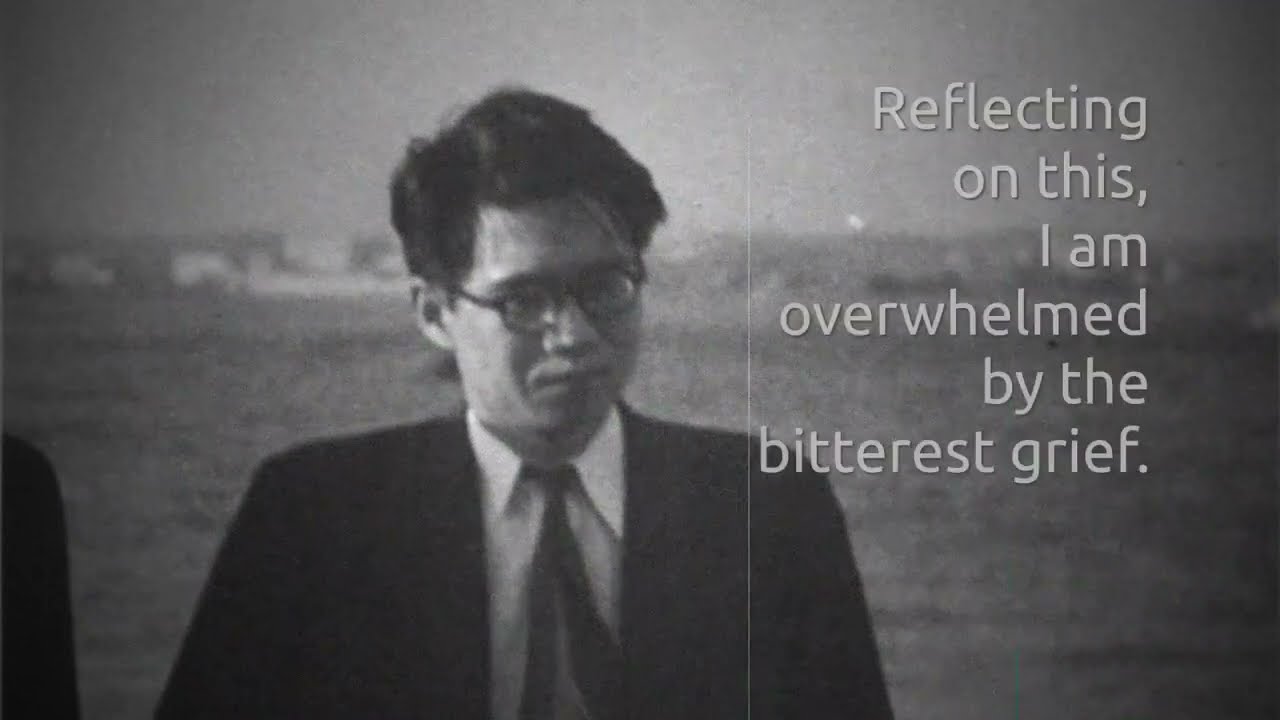Reason for suicide, not math problem: Who is Yutaka Taniyama?
Yutaka Taniyama's name is associated with one of the most famous problems in mathematics: Fermat's last theorem. Unfortunately, his life, as many people dealing with this theorem, ended with a bad ending and he committed suicide.

In fact, it all started about 400 years ago, when Fermat made a surprisingly simple assumption in 1637 by Pierre de Fermat. In Fermat's notes, he states that if n is any integer greater than 2, there is no integer a, b, c other than zero, which satisfies the equation an + bn = cn.
Fermat claims to have proved this statement. However, according to his statement, he does not have enough room to write this proof. It is this claim and the simplicity of the problem in question that steals the hearts of mathematicians. Rediscovering Fermat's proof eventually becomes a challenge for mathematicians.
Yutaka Taniyama (12 November 1927 – 17 November 1958) was a Japanese mathematician known for the Taniyama–Shimura conjecture. In 1958, Taniyama worked for University of Tokyo as an assistant (joshu), was engaged, and was offered a position at the Institute for Advanced Study in Princeton, New Jersey. On 17 November 1958, Taniyama committed suicide. He left a note explaining how far he had progressed with his teaching duties, and apologizing to his colleagues for the trouble he was causing them.
The proof of the theorem was finally done by Andrew Wiles in 1995. And that proof would certainly not fit in any margin. Andrew Wiles didn't actually prove Fermat's last theorem. What he proved was a conjecture named after Yutaka Taniyama.
Yutaka Taniyama and the Taniyama-Shimura Conjecture
Elliptic curves are especially important in number theory and form an important area of current research. The equation for an elliptic curve is y2 = x3 + ax + b. Working on algebraic number theory in 1955, Taniyama posed a problem with elliptic curves.
Subsequently, Goro Shimura and André Weil pondered the question and formulated an assumption. Every elliptic curve must come with a modular form, a mathematical object that is infinitely symmetrical. This is known today as the Taniyama-Shimura-Weil conjecture.
This assumption shows us that two very distant subjects of mathematics are in a fundamental relationship somewhere deep down. The Taniyama-Shimura conjecture also had popular value. The US mathematician Ken Ribet has shown that this assumption is also related to Fermat's famous Last Theorem.
If Fermat's last theorem were false, then the Taniyama-Shimura-Weil conjecture would also be false. Of course, the opposite was also true. Indeed, Andrew Wiles went this way and proved Fermat's Last Theorem.
Thus, the Taniyama-Shimura-Weil conjecture became the penultimate link in a journey that has plagued the world's most famous mathematicians for centuries.
The short life of the Japanese genius Yutaka Taniyama ended in a tragedy. Yutaka Taniyama committed suicide on November 17, 1958, at the age of 31. While Fermat wasn't exactly to blame, perhaps it was the depression of hard work.
Taniyama fell in love with a woman named Misako Suzuki and began preparations for marriage. His friends sneered at this because they thought Suzuki was not a suitable match for him. But the two lovers continued their preparations without wearing anything.
They bought a new flat and furnished it down to the kitchen utensils. Everything was fine, or so it seemed. All of a sudden came the news of disaster; Taniyama was found dead in his room. Before his suicide, he left a note that took up three pages of his workbook.
“Until yesterday, I had no apparent intention to kill myself. But lately, many people have noticed how tired I am, both physically and mentally. I also do not fully understand the reason for my suicide, but it is certainly not related to a particular event or issue. I can only say this much: I have lost confidence in my future.”
Taniyama later wrote down requests about his possessions in his note. He indicated which books and records were borrowed from the library or from friends. "I'd like to leave my records and record player to Misako Suzuki if that doesn't upset her," he wrote.
He also stated what point he had come to in his lectures at the university and apologized to his colleagues for the difficulties this situation would cause.
A few weeks after Taniyama's suicide, his fiancée Misako Suzuki also took her own life. She left a much shorter note: “We promised each other that we would never part, wherever we went. I must unite with him.”
